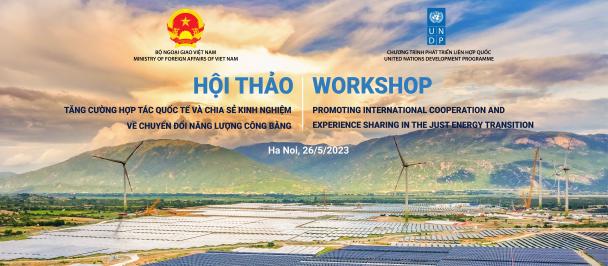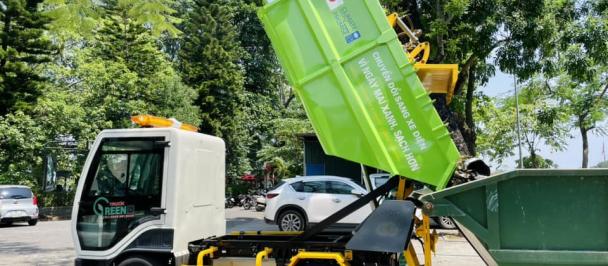Technical meeting: Assessment of scenarios of taking coal-thermal power generation in Viet Nam to net-zero GHG emissions by 2050
March 28, 2024

Mr. Le Viet Cuong, Deputy Director General, Institute of Energy
Distinguished Guests, Experts, and Colleagues
Ladies and Gentlemen,
Xin chào and good morning!
On behalf of UNDP, I’d like to extend a warm welcome to you at this technical meeting on scenarios to take coal-thermal power generation to net-zero emissions by 2050.
We hope this meeting can deep dive into analysis on the implications, challenges, and opportunities of transitioning from coal-thermal plants to shape a more resilient and sustainable future for Viet Nam.
We also designed this meeting to be connect financial institutions and plant operators, sparking a conversation on the decommissioning or closure of old, inefficient unabated coal-fired power plants.
Ladies and Gentlemen,
Viet Nam’s economic performance is enviable, achieving close to 6% annual GDP growth since 2010. At the same time and over the same period, coal consumption rose at an average rate of 11 percent per year, the fastest growth among Southeast Asian economies.
Today, coal power generation from some 38 plants accounts for nearly half (46%) of the country’s power supply, meaning our heavy reliance poses significant challenges for decarbonization of Viet Nam’s energy sector, dependence on imports, and air pollution.
To meet Viet Nam’s global commitments to net-zero, ceasing the issuance of new permits for the construction of unabated coal-fired power generation, and the transition of Viet Nam’s coal fleet will require concerted efforts, especially as we grapple with plants today nearing their end of life.
In an effort to inform these difficult choices, UNDP and Viet Nam Institute of Energy (IOE) have developed case studies to assess energy transition scenarios of coal-thermal power plants in Viet Nam, focusing on Pha Lai, Cao Ngan, and Van Phong plants, evaluating costs and benefits potentially incurred from this process.
Our study is intended to help formulate bankable proposals for decommissioning, repurposing and/or refurbishing of these plants, inclusive of timelines for scenarios such as co-firing with ammonia, PV and battery energy storage, and flexible gas turbines.
Allow me to share some of the study’s key recommendations:
First, to facilitate the mobilisation of financing, it will be necessary to strengthen cooperation, exchange research, and develop multiple policies to advance renewable energy development. One of identified next steps that could be applied under the JETP is a transparent, clear and accessible financial mechanism for businesses to have facilitated access to equity and banking finance, in turn reducing barriers and credit risks.
Second, Viet Nam should develop a detailed roadmap for the conversion of its coal-fired power plants, including a list of assets to be converted and plans for handling personnel and environmental impacts.
And Third, irrespective of the scenario, plant conversions may be expected to result in negative socio-economic consequences. A sizeable number of workers employed directly or indirectly by coal mining activities, transportation, and power generation, particularly across remote areas, may be impacted by a full coal phaseout. To guard against community disruption, especially among unskilled labourers and those over the age of 40, adequate consultations, re-training and re-skilling programmes and interventions to ensure affordable electricity prices for low-income groups are crucial.
Friends and colleagues,
This work would not have been possible without the effective technical cooperation with the Institute of Energy, and I’d like to extend sincere thanks for the on-going collaboration in support of Viet Nam’s low carbon development.
I also would like to thank the World Bank and ADB for contributing to this technical meeting by generously sharing their research addressing the repurposing of Ninh Binh coal fired power plant and the role of the Energy Transition Mechanism programme in Indonesia and the Philippines, respectively.
UNDP is proud to convene this technical meeting, involving key stakeholders from the private sector, government and development partners alike, to assess various scenarios for achieving a successful and just transition of Viet Nam’s coal power generation. We must acknowledge making a just and inclusive transition, in alignment with Viet Nam’s revised Labour Code and its commitment to the ILO Declaration will not be easy, but it is achievable. This means we must enable a broad multi-stakeholder engagement approach to all voices interested in this crucial topic.
I look forward to learning from the open and informative discussions, and wish you all good health and success!
Thank you! Xin cảm ơn!

 Locations
Locations



